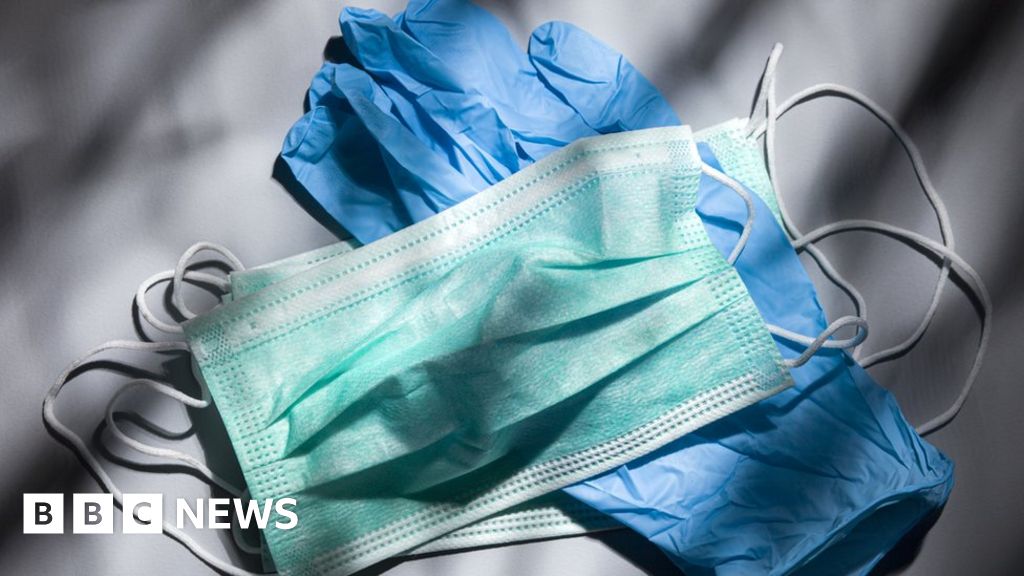Despite Prime Minister Boris Johnson’s claim that 70% of personal protective equipment (PPE) is to be made in the UK, his government’s own figures suggest the total is likely to be closer to a third.
More than 3.5 billion items, including aprons, goggles, facemasks and gloves, have been bought by the government this year to protect NHS and social care staff from the spread of coronavirus.
As the virus took hold in the spring, the battle to get hold of protective gear in the face of soaring global demand and disruption to supply chains was likened by experts to the Wild West.
In July, it was revealed that £15bn had been allocated by the Treasury to buy such kit – equivalent to about £200 per person.
With more than 80% of PPE items initially produced in China, concerns were growing not just about cost but the ability of the UK to be self-sufficient in key equipment.
The prime minister sought to reassure over the UK’s preparedness for a second wave when he addressed the nation on Wednesday. He said that by December “we expect 70% of the demand for PPE to be met by UK manufacturers, compared to just 1% before the pandemic”.
Contract concerns
But the government’s own PPE strategy, published just the day before, makes clear that this 70% number excludes gloves – which, according to its figures, make up over half of all PPE being distributed.
The raw materials used in gloves means that no British supplier has been found. Include gloves, and the total number of items that will be UK-sourced appears to be more like a third.
- Does the NHS have enough protective gear for winter?
- PM’s father pictured in shop without face covering
The government did not respond to a request for comment on the discrepancy.
Concerns have previously been raised over contracts that were awarded to some UK companies, particularly during the initial rush. For example, 50 million masks supplied by Ayanda Capital as part of a £252m deal could not be used due to safety concerns.
But if the government’s strategy goes to plan, being able to source one in three pieces of equipment domestically by December would still mean marked progress compared to the start of the year. And with 32 billion items in total on order or delivered, the UK is not in danger of running out of vital bits of equipment soon.
However, the figures reveal that there may be more work to be done to improve the UK’s resilience in the face of the threat posed by the virus.
